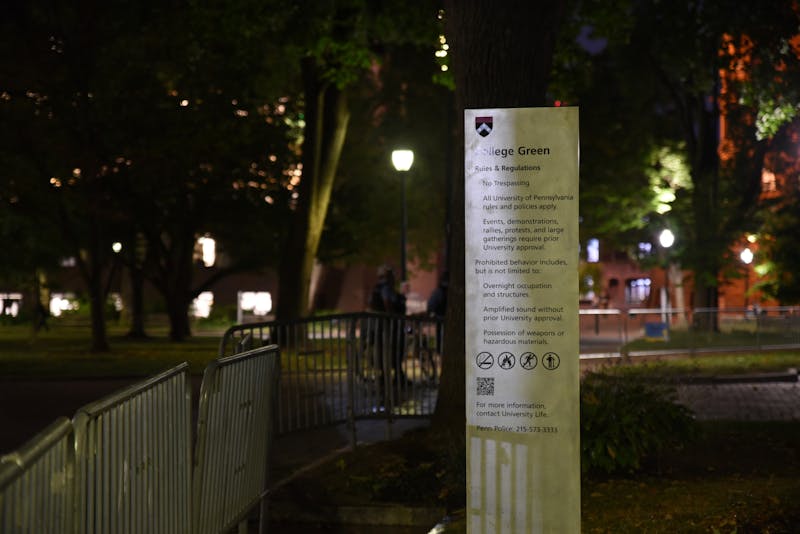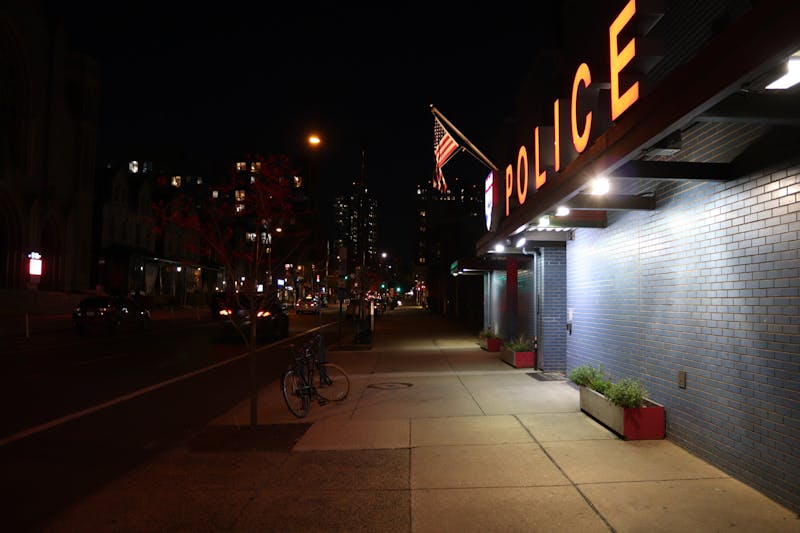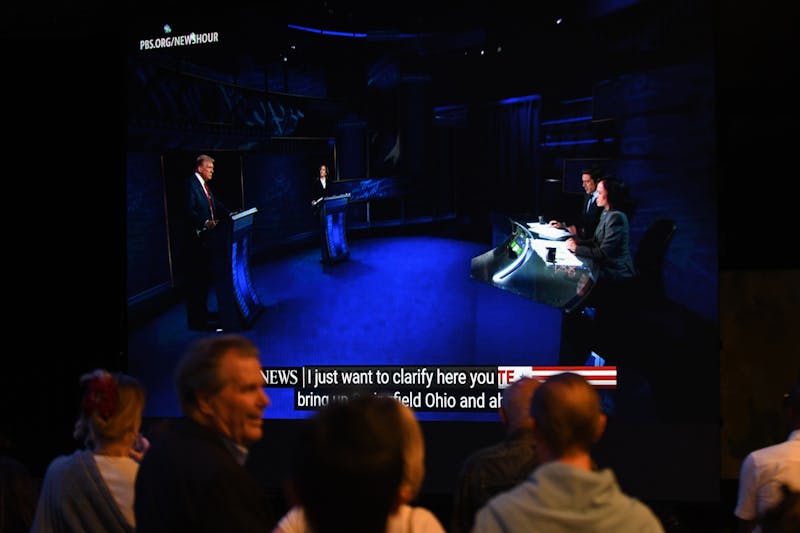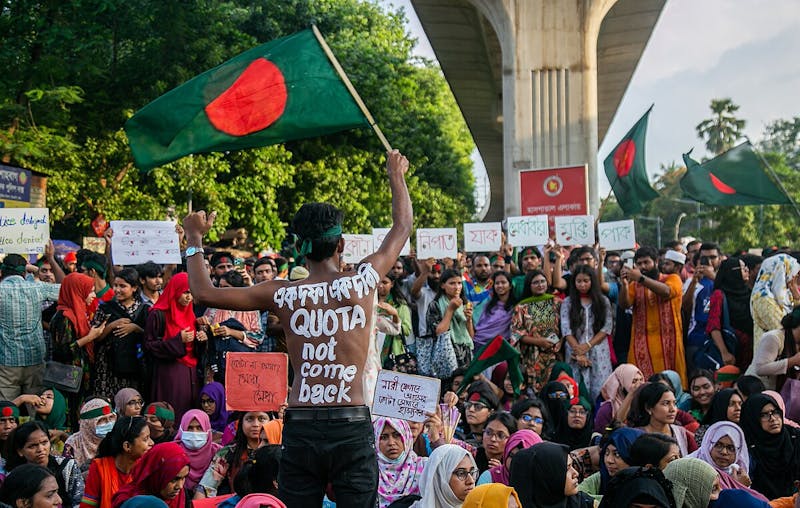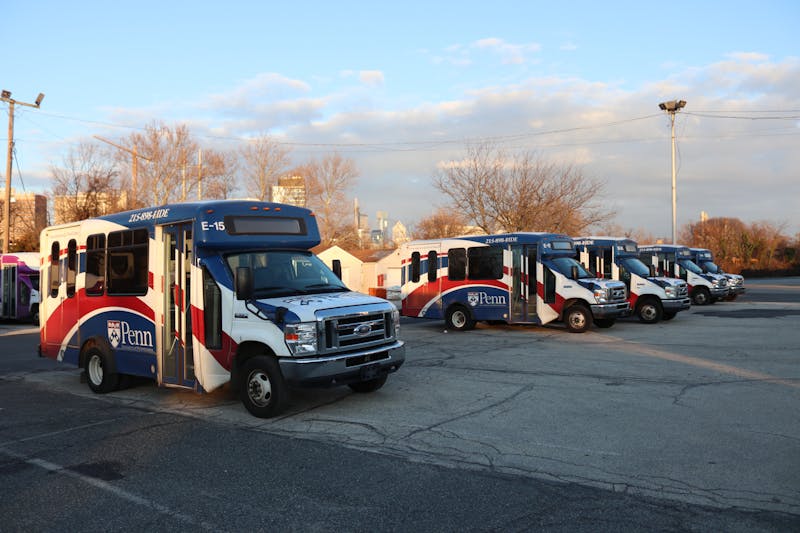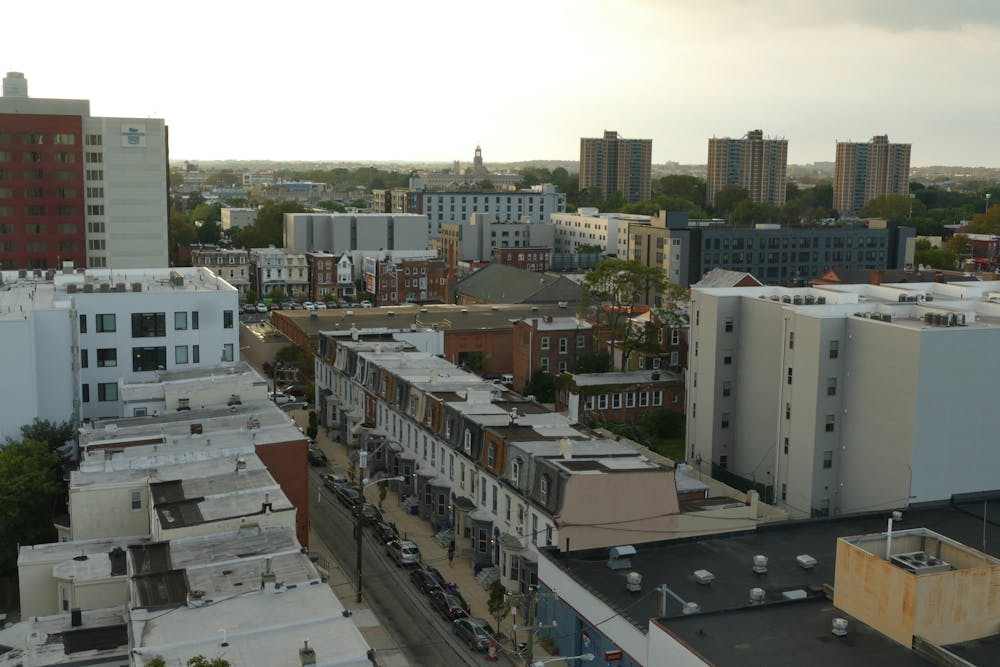
After hearing sirens outside on Sept. 19, I watched from my window as several police officers chased a man up the steps of the Radian. It was not until minutes later that I received the infamous “shots fired” alert from the Division of Public Safety, so in the meantime, I looked to the only logical source for information: Sidechat. On the anonymous messaging platform, students posted videos and descriptions of the incident from their own perspective, which involved the arrests of two men on Penn’s campus.
As time passed and students began reading the alert, however, more targeted and upsetting comments made their way to the surface. Although it was determined that no shots were in fact fired and both suspects were unarmed, it seemed that students clung onto the idea that crime and violence had invaded our campus. In a post receiving 484 upvotes, one student wrote, “They really need to clean up philly. Cmon now this is an Ivy League School.” Another student responded in agreement, writing, “We need gentrification if it means not living every day worrying if I’m going to get shot.”
To put it lightly, I was horrified. These student appeals for gentrification and “clean[ing] up” Philadelphia in response to arrests reflected an obvious sense of entitlement, as it requires immense privilege to see gentrification as a benefit. The act of gentrification is only good for the gentrifiers and is an extreme act of economic and oftentimes racial violence to the people it displaces. Not to mention that West Philadelphia, especially University City, has already been painfully gentrified. What were once the houses and businesses in a close-knit Black community are now Penn College Houses, academic buildings, and greek housing. At a school that prides itself on inclusivity and intellectual rigor, the failure to recognize this truth is incredibly concerning.
Equally disheartening was the elitist language present in these comments. The emphasis on Penn being an Ivy League school echoes a clear message from students: We deserve safety simply because we are Penn students. Though many may not realize this, admission into this school does not make you better or more worthy of safety than anybody else. The right to security and comfort is something to which all people are entitled. And reducing crime in West Philadelphia should not be on account of Penn students deserving that. It should be a response to the needs of those native to this city.
This is not meant to demonize students for being afraid. Fearing violence is normal and expected, especially for students who are unfamiliar with urban areas — bigger cities do not necessarily have higher crime rates, though this is a common misconception. However, the idea that the presence of poor people in our community warrants a fear of being shot, and therefore requires gentrification as a solution, is incredibly problematic. To put it simply, you can be afraid of violence, but your response should not be to price out the low-income families and individuals in your community.
While it’s true that poverty is linked to crime, it is rare for this crime to cross class lines. This means that the violence so many Penn students are worried about can be far more of a threat to West Philadelphia natives than to us. The Bureau of Justice Statistics reports that households at or below the federal poverty level have more than double the rate of non-fatal violent crime victimization than other groups. In West Philadelphia, 30.3% of households fall below this line. And unsurprisingly, only 3.3% of Penn students come from households in the bottom 20% of earners. So really, this concept of poverty-fueled violence is not and has never been a threat to the majority of us.
To be clear, I do think we should reduce crime. Sure, because students should feel safe. But more importantly, because everyone should feel safe. While some studies show that gentrification reduces crime, it only does so in the post-gentrification neighborhoods. Poverty is not eradicated with gentrification; rather, it is moved elsewhere when working class residents are pushed out of their homes due to rising rent and store prices. All of the supposed benefits of gentrification — better-funded schools, higher-quality healthcare, improved infrastructure — rarely, if ever, reach low-income residents, because they are forced out before they have a chance to benefit from it. Poor people stay poor and are forced into other neighborhoods or being unhoused, and crime resulting from economic desperation continues elsewhere.
So how do we actually reduce crime? We can reduce poverty. Increasing the supply of affordable housing, funding stable job creation, and expanding social services benefits are all strategies that have been proven to reduce crime. Instead of forcing poor people out of their neighborhoods so that we can feel “safer,” we should support government policy that helps eradicate poverty and more evenly distribute resources. We’ll never be able to weed out crime if we don’t pull it out from the root.
And at the risk of sounding too radical, everyone deserves safety, housing, and enough money to feed their families.
INGRID HOLMQUIST is a College sophomore studying philosophy, politics, and economics from Silver Spring, Md. Her email address is ingridhh@sas.upenn.edu.
The Daily Pennsylvanian is an independent, student-run newspaper. Please consider making a donation to support the coverage that shapes the University. Your generosity ensures a future of strong journalism at Penn.
Donate







